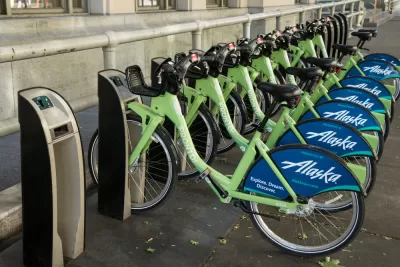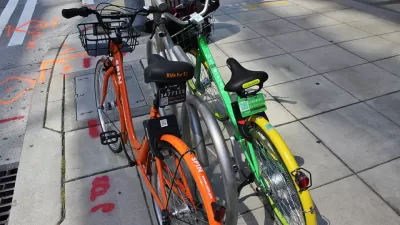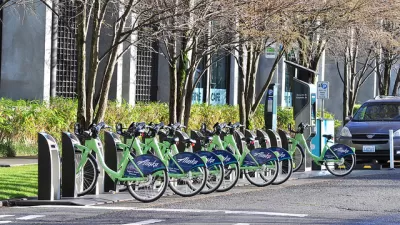Seattle's bikeshare found itself in a negative feedback loop of low ridership, lean revenue, and limited facilities.

[Updated March 1, 2017] Bikeshare programs went from novelty to ubiquitous in the last decade. Even small cities like Rapid City, South Dakota and Clarksville, Tennessee now have their own programs. But somehow Seattle, one of the country's denser, more active-transit-friendly cities, saw its bike share program die. "Pronto! isn’t the first bike share system to cease operations, but it might be the most prominent non-pilot program to shut down," Andrew Small writes for CityLab.
Small's article conducts an autopsy of the Seattle's Pronto! program and finds a number of causes of failure. One was a lack of density of stations, which made the system impractical for many who did not live or commute to places close to Pronto! stations. Another is the city's helmet laws, which made spontaneous rides less easy to achieve. There was also a lack of funding. Small argues that membership was expected to fund too much of the program. Small points to problems with the amount of government funding and the difficulty of getting corporate funding after the program failed to meet its membership goals.
[The story has been updated to correct the location of Rapid City.]
FULL STORY: The Four Horsemen of the Bike Share Apocalypse

Planetizen Federal Action Tracker
A weekly monitor of how Trump’s orders and actions are impacting planners and planning in America.

Map: Where Senate Republicans Want to Sell Your Public Lands
For public land advocates, the Senate Republicans’ proposal to sell millions of acres of public land in the West is “the biggest fight of their careers.”

Restaurant Patios Were a Pandemic Win — Why Were They so Hard to Keep?
Social distancing requirements and changes in travel patterns prompted cities to pilot new uses for street and sidewalk space. Then it got complicated.

Platform Pilsner: Vancouver Transit Agency Releases... a Beer?
TransLink will receive a portion of every sale of the four-pack.

Toronto Weighs Cheaper Transit, Parking Hikes for Major Events
Special event rates would take effect during large festivals, sports games and concerts to ‘discourage driving, manage congestion and free up space for transit.”

Berlin to Consider Car-Free Zone Larger Than Manhattan
The area bound by the 22-mile Ringbahn would still allow 12 uses of a private automobile per year per person, and several other exemptions.
Urban Design for Planners 1: Software Tools
This six-course series explores essential urban design concepts using open source software and equips planners with the tools they need to participate fully in the urban design process.
Planning for Universal Design
Learn the tools for implementing Universal Design in planning regulations.
Heyer Gruel & Associates PA
JM Goldson LLC
Custer County Colorado
City of Camden Redevelopment Agency
City of Astoria
Transportation Research & Education Center (TREC) at Portland State University
Camden Redevelopment Agency
City of Claremont
Municipality of Princeton (NJ)





























